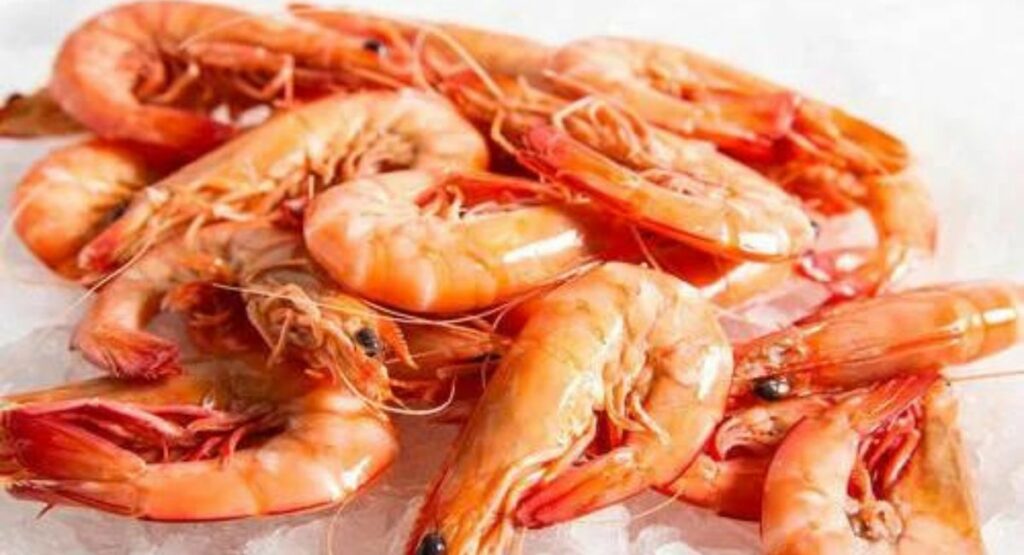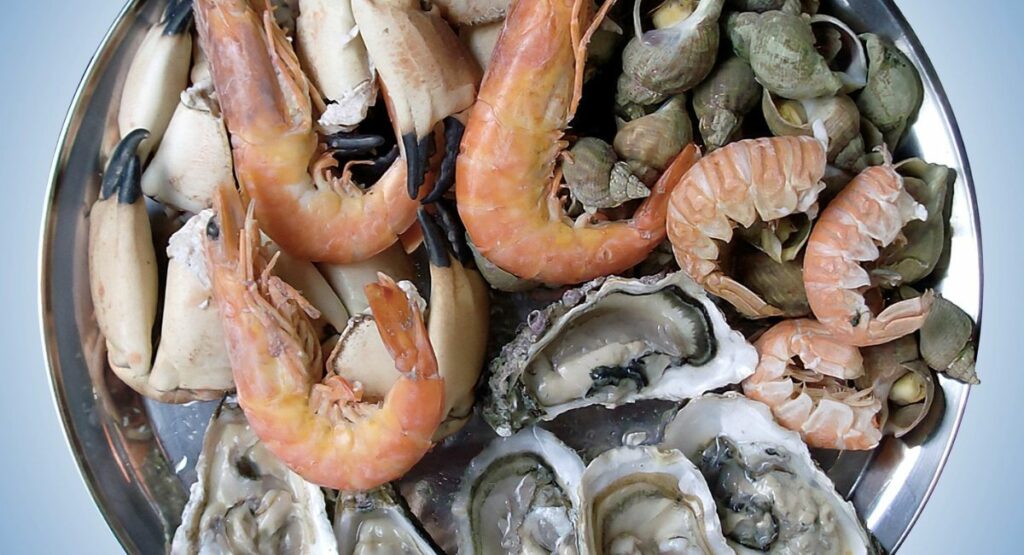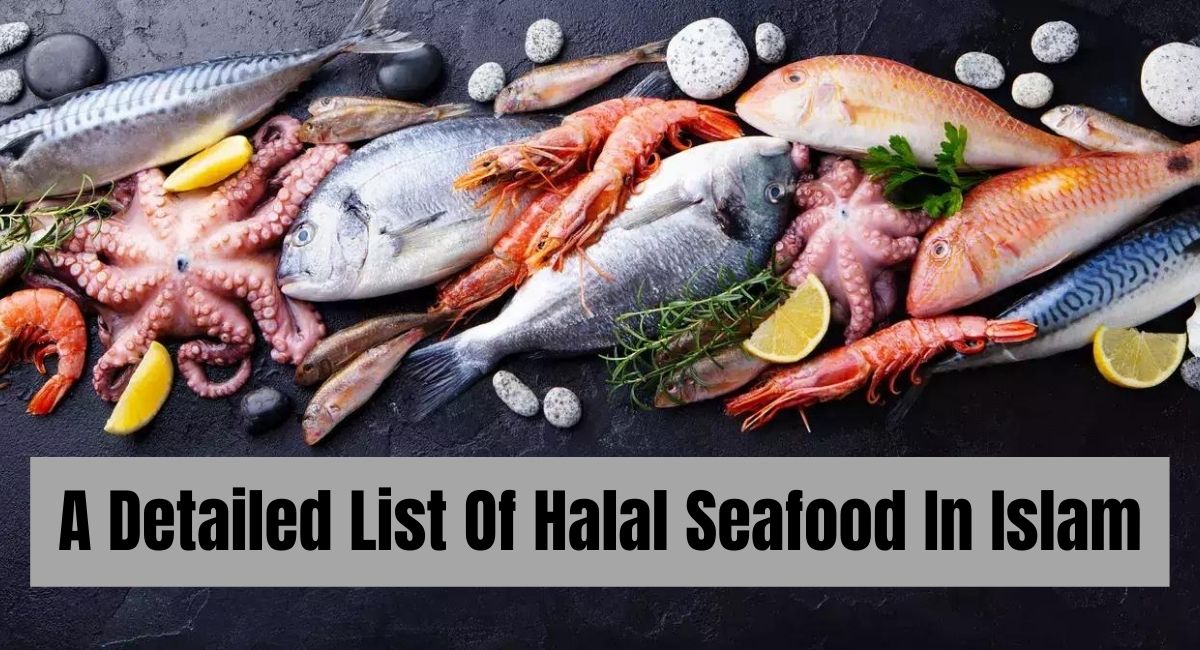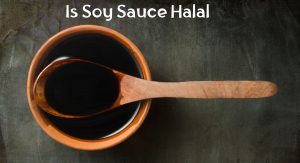Are you looking for a comprehensive list of halal seafood that is approved by Islam? Seafood can be an important part of a balanced diet, but it can be difficult to identify which types are considered Halal. This blog will provide you with a detailed list of Halal seafood in Islam and explain the reasons why certain species of seafood are considered Halal. With this list, you can make informed decisions about the seafood you purchase and eat without worrying about whether it is considered permissible under Islamic dietary laws. We hope that with this guide, you can nourish yourself and your family with wholesome and delicious Halal seafood.
We’ll discuss the reasons why certain kinds are considered Halal and provide you with a comprehensive list that you can refer to when purchasing seafood. In addition, we’ll also provide tips on how to identify and prepare Halal seafood dishes so that you can enjoy them safely and confidently.
What is Halal Seafood?

Halal seafood is any type of seafood that is caught or farmed in a manner that is consistent with Islamic law. This means that it must be free from any type of contamination or impurity and is considered to be healthy and safe for consumption. In Islamic dietary laws, the consumption of cer
Halal seafood is seafood that complies with Islamic dietary laws and regulations. This means that it has been prepared in accordance with specific criteria approved by Islamic authorities, such as the World Halal Council or national certification bodies.
In general, these criteria include avoiding any ingredients derived from pork or non-halal animals, as well as abstaining from the use of alcohol during the preparation process. There is also a requirement for meat to come from animals that were slaughtered in accordance with Islamic practice.
Some examples of halal seafood include fish, shrimp, prawns, crab, mussels, oysters, squid and octopus. In addition to these types of seafood, there are also some varieties of shellfish and other aquatic creatures that may be considered halal, depending on the specific regulations in place. It is important to note that while some types of seafood are generally regarded as being halal, this can vary from country to country, or even within different regions.
Therefore, it is always wise to check local guidelines before consuming any seafood. Additionally, certification from a reputable Islamic authority might be required for certain types of seafood in order to ensure that it is considered halal.
Benefits of Eating Halal Seafood
Eating Halal seafood has numerous health benefits. Halal is an Arabic term that means “permissible” and indicates that the fish was caught using humane methods, and is free from hormones, genetically modified organisms (GMOs), growth-promoting antibiotics, or other additives. Halal-certified seafood also tends to be higher quality, as halal certification standards for seafood are very strict.
Halal seafood is packed with nutrients and minerals, including essential fatty acids such as omega-3s. Eating a diet rich in omega-3s can help reduce inflammation throughout the body, regulate cholesterol and blood pressure levels, promote heart health, and support brain development. Additionally, due to the ban on certain additives, eating halal-certified seafood helps reduce exposure to toxins and pollutants.
Finally, when buying halal-certified seafood, you can be sure that it came from a source that practices responsible fishing methods, so you know you are not contributing to ocean depletion or overfishing. This means that in addition to the health benefits, you are also helping to protect our environment.
Putting all of these benefits together, Halal-certified seafood is a healthier and more sustainable choice than non-Halal options. Choosing halal-certified seafood can help ensure that you are consuming the healthiest and most ethically sourced products.
It’s an especially great option for Muslims who want to make sure they are adhering to their religious requirements. No matter your dietary needs or beliefs, eating halal-certified seafood can be a great way to stay healthy and help protect our environment.
Types of Halal Seafood

Islam permits the consumption of certain types of seafood as long as they are Halal and obtained from a reliable source. According to Islamic dietary laws, all types of fish, including freshwater and saltwater, are considered Halal as long as they have scales and fins. This makes most types of fish permissible to eat, such as salmon, trout, tuna, cod, and mackerel. Additionally, all types of shellfish, such as oysters, mussels, shrimp, crabs, and lobsters, are also permissible as long as they are not dead before being consumed.
1. Fish
When it comes to halal seafood, fish is the most commonly consumed type. Fish can be cooked in various ways, such as grilled, fried, steamed, or baked. It can also be served as part of a salad, soup, or as a main dish. Fish is a great source of protein and essential vitamins and minerals, making it a healthy and nutritious choice for any meal.
2. Shellfish
Shellfish is a popular type of seafood that is allowed in Islam. Shellfish include oysters, mussels, shrimp, crabs, and lobsters. Shellfish can be cooked in a variety of ways, such as grilled, fried, baked, or steamed. It is an excellent source of lean protein and can be served as part of a salad, soup, or as main course. Additionally, shellfish is rich in omega-3 fatty acids, which can help reduce the risk of heart disease and stroke.
Guidelines for Eating Halal Seafood
Eating halal seafood is an important part of adhering to Islamic dietary laws. It is important to know the guidelines for eating halal seafood in order to make sure that it is properly prepared, sourced, and enjoyed in a healthy way.
Preparation of Halal Seafood
When preparing halal seafood, it is important to make sure that it is properly cleaned and cooked. All seafood should be inspected for any signs of damage or contamination. To ensure that the seafood is properly cooked, it should be cooked at a high temperature for an appropriate amount of time. Additionally, it is important to make sure that the seafood is not cooked with any non-halal ingredients.
Sources of Halal Seafood
When sourcing halal seafood, it is important to make sure that it is sourced from a reliable and reputable source. Additionally, it is important to make sure that the seafood is labelled as “Halal” and is handled according to Islamic laws. If possible, it is best to purchase seafood from a local fish market or an online halal seafood store.
Health Benefits of Eating Halal Seafood
Eating halal seafood can have numerous health benefits. Seafood is an excellent source of protein and essential vitamins and minerals. Additionally, seafood is low in fat and calories and is a great source of omega-3 fatty acids, which can help to reduce inflammation and improve heart health. Eating halal seafood regularly can also help to boost the immune system and reduce the risk of certain diseases.
FAQ
What does “halal seafood” mean?
Halal seafood refers to any seafood that is permissible according to Islamic law. This means that the seafood must come from a source that is considered halal, and it must be prepared in a halal manner.
What are some examples of halal seafood?
Some examples of halal seafood include fish such as salmon, tuna, and cod, as well as shrimp, crab, and lobster (although there is some disagreement among Islamic scholars about whether these latter three are halal).
Can halal seafood be prepared in any way?
No, halal seafood must be prepared in a way that is in accordance with Islamic law. This means that it must be prepared using halal ingredients and methods, and it must not come into contact with any haram substances. For example, seafood cannot be fried in oil that has been used to fry haram foods such as pork.
Conclusion
There are a variety of halal seafood options available for Muslims to consume. This includes common items such as tuna, salmon, crab, and shrimp. These seafood items are not only delicious, but they also provide a range of health benefits. Eating halal seafood can help reduce the risk of heart disease and provide essential vitamins and minerals. It is also important to note that all seafood must be slaughtered according to Islamic guidelines and that any seafood that is not slaughtered according to Islamic guidelines is considered haram and should not be consumed.








